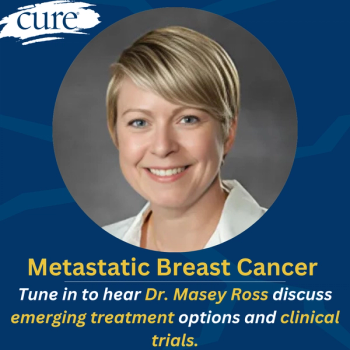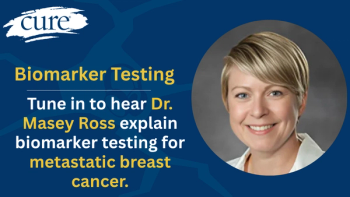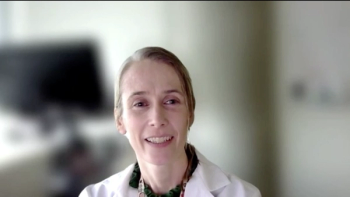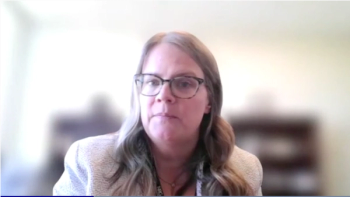
Clinical trials give patients with metastatic breast cancer access to new treatments, all while being closely monitored and moving the landscape forward.

Clinical trials give patients with metastatic breast cancer access to new treatments, all while being closely monitored and moving the landscape forward.

An expert helps patients with metastatic breast cancer understand treatment sequencing, biomarker testing and emerging options to support decision-making.

Dr. Masey Ross explains how biomarker testing, patient history, and quality-of-life concerns guide treatment decisions in metastatic breast cancer.

Dr. Alicia Arnold and Dr. Priyanka Raval discuss first- and later-line treatment options for those with ER-positive, HER2-negative stage 4 breast cancer.

Dr. Mabel Mardones educates patients on breast cancer subtypes, as well as treatment options for those with ER-positive, HER2-negative disease.

Dr. Brian Czerniecki, of Moffitt Cancer Center, led a CURE Educated Patient® Updates in Metastatic Breast Cancer event, and provided subsequent updates.

An expert discusses the next steps for patients with metastatic breast cancer after their disease no longer responds to hormone therapy.

An expert discussed the importance of patients learning about their specific type of breast cancer to understand potential treatment options.

An expert discussed the importance of biomarkers in guiding treatment decisions for patients with metastatic breast cancer.

Through communication and education, patients with metastatic breast cancer may be able to balance treatment with quality of life.

An expert explained the importance of understanding different subtypes of metastatic breast cancer and available treatment options based on biomarker testing.

An expert discussed the importance of knowing the questions to ask a patient’s care team to navigate one’s journey, including treatment and next steps.

If metastatic breast cancer no longer responds to a given therapy, finding out what targetable mutations a patient has may guide the next steps for treatment, an expert said.

An expert explained the different treatment options for patients with estrogen receptor-positive, HER2-negative breast cancer that has recently been diagnosed or has recurred.

An expert explained how next-generation sequencing can help patients with metastatic breast cancer understand their disease and available treatment options.